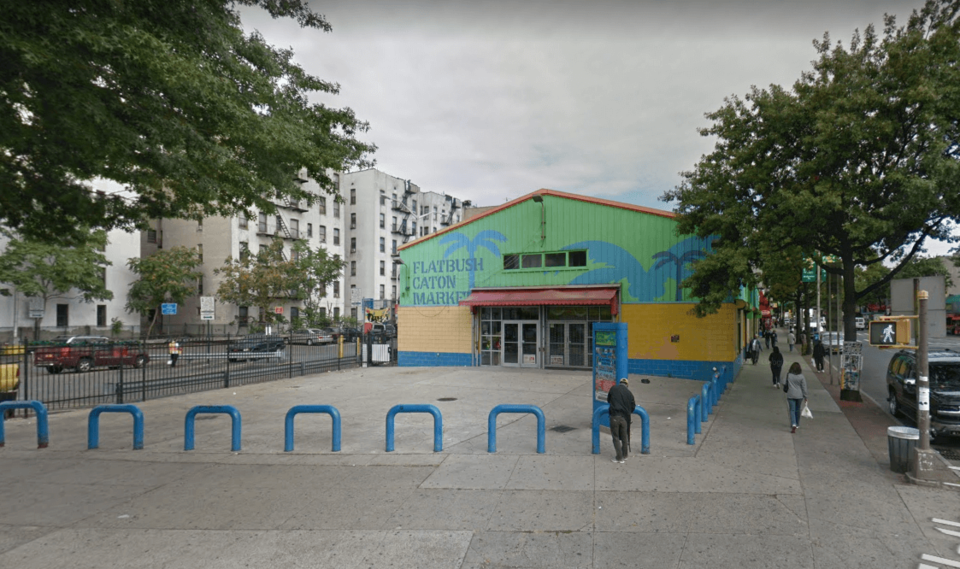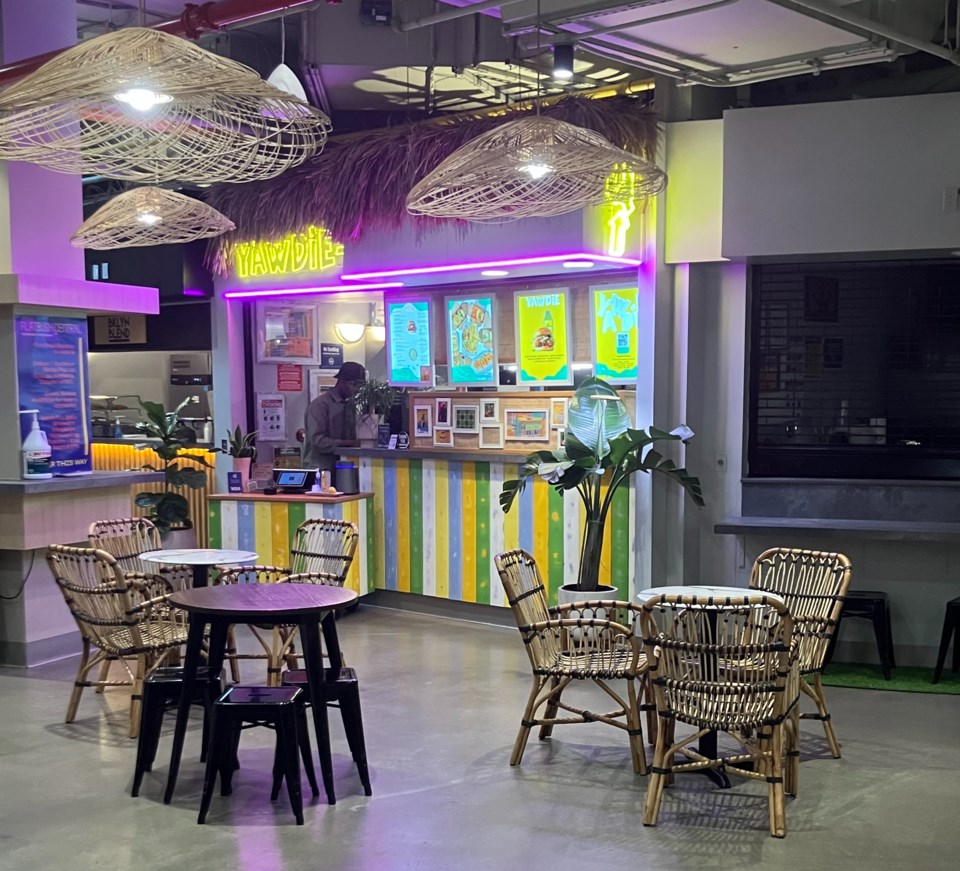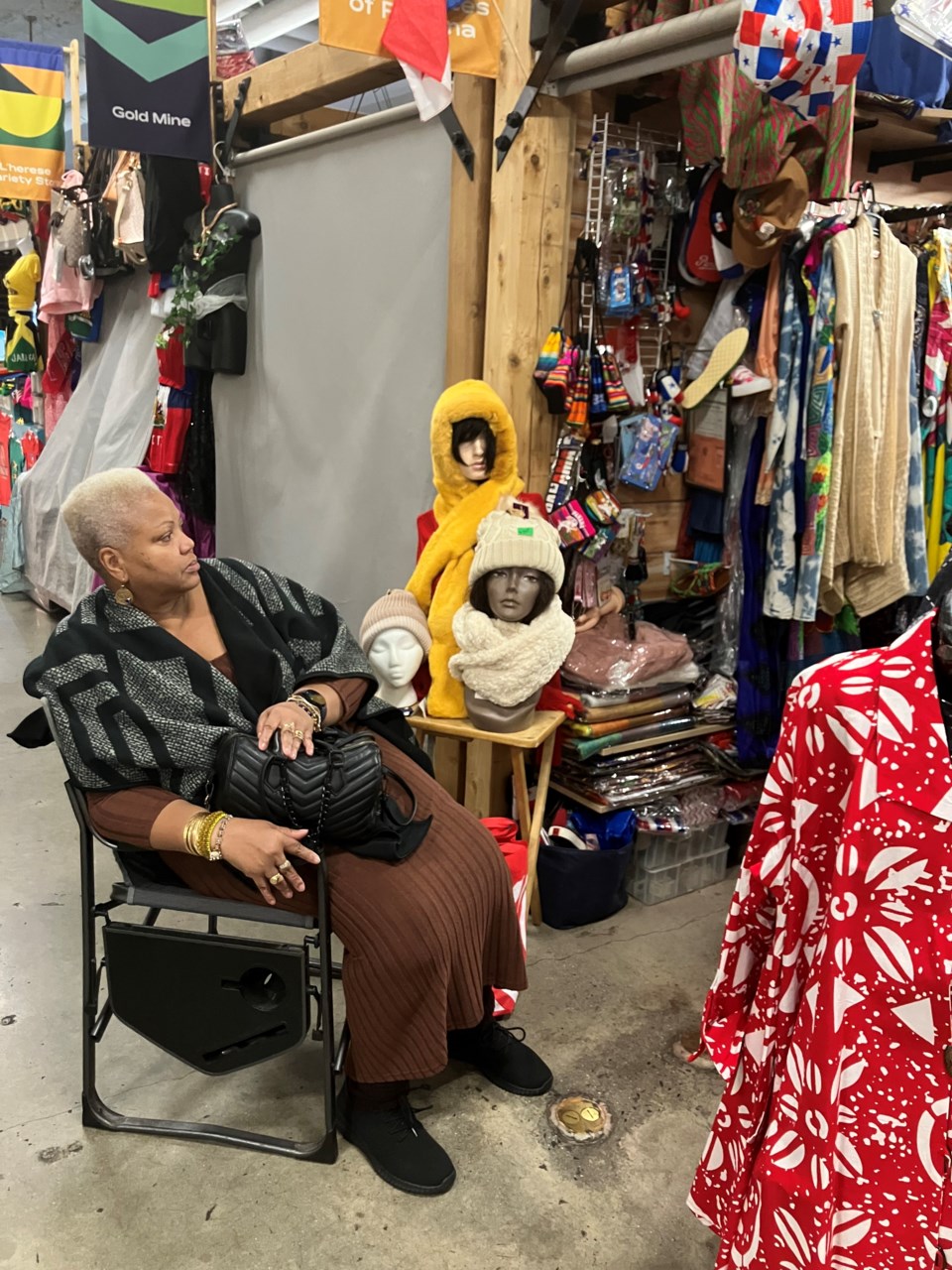Vendors selling Caribbean goods lament slow business at their revamped marketplace in Flatbush, saying it pales in comparison to the bustling space they lost to a new residential building developed by the city.
The vendors’ difficulties at the Flatbush Central Caribbean Marketplace, which re-opened in 2022 in the ground level of a new 14-story residential building at 2123 Caton Ave., are unfolding against the backdrop of a gentrifying Flatbush, where the customer base has changed and locals don’t seem to know the market reopened.
Merchants say the entrance to the new marketplace, on Caton Avenue, is likely driving foot traffic away.
Karlene Robinson has been selling vinyl records and CDs for more than twenty years. She said that in the entrance to the old market called Flatbush Caton Market, was on Flatbush Avenue, a busier corridor. Now, the entrance is set back from the sidewalk on Caton Avenue and is far less visible, she said.

Robinson said sales have dropped approximately 65% from what they used to be before the old market closed in 2017. The vendors were asked by the city to temporarily move to a different location on Carlton Avenue, and then asked to move back in 2022 when the construction of the new building was finished.
The market was founded in 2001 by former Council Member Una Clarke, Congresswoman Yvette Clarke’s mother, to give street vendors a permanent location and to incubate Caribbean businesses. The legacy vendors at the market are able to qualify for rent-controlled contracts for their booths.
Since the reopening, Robinson said foot traffic has significantly diminished. “You see how quiet it is in here,” she said, looking around the well-lit but empty space that did not have one person walking around on a recent weekday. “Almost every day this is it.”
Several booths away, Angelina Civil has been selling clothes, herbs, incense and foodstuffs from Haiti since 1996. She described the old market as bustling. “It was busy, busy, busy every day,” she said.
Civil said she makes approximately three quarters of the sales she used to make in the old market. “Now people don’t come,” she said.

The new market simply doesn’t have the look of a Caribbean establishment, said Marijo Montrose, the market’s manager. Now it’s all steel and glass, whereas the old one-story market was painted outside with swaths of bright color that drew the eye and declared the building’s purpose.
“Progress has both good and bad sides,” Montrose said.
The current market includes a design lab, an entrepreneur training program and a 2,500-square-foot shared community kitchen called Mangrove, where people from the community can cook food to sell.
James Johnson-Piett, the chief executive officer of Urbane Development, a community development organization chosen by the city to work on the venture, said the group attempted to strike a tricky balance between development and preservation.
“We tried our best to speak to the Caribbeanness,” he said, pointing out that while regulations limit what is possible in terms of signage, the ironwork on the building’s facade is Haitian in its design.
However, Johnson-Piett also said that the “housing-centric” nature of the development meant that compromises had to be made. The building’s “design favored housing over other uses,” he said.

Thanks to capital improvement money secured from local politicians, including from State Senator Zellnor Myrie and State Assembly Member Brian Cunningham, a new door facing Flatbush Avenue will be added imminently, according to Johnson-Piett. In addition, he hopes the bars inside will start attracting more customers and a new social media manager can work on marketing.
Stephanie Delia, the executive director of Little Haiti BK, a non-profit that supports local Haitian and Caribbean institutions, said she wasn’t sure the market in its current form best served the community.

She is also worried about the many Caribbean business owners in the area that have said they are finding it difficult to pay rent as pandemic stimulus funds start running out.
Meanwhile, Irene Thompson, who sells clothes from her native Panama inside the marketplace, estimated business is down by as much as 50% to 60% from what it used to be.
“It’s really difficult,” said Thompson, who argued that many people don’t know the vendors are selling their wares inside the new building.
Whatever the future of the market is, Robinson, the music merchant, is not giving up. “We’re here and we’re still trying,” she said.




